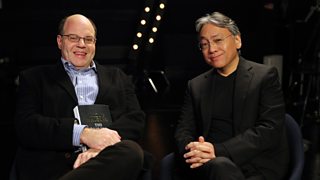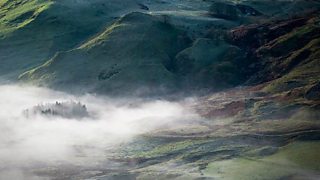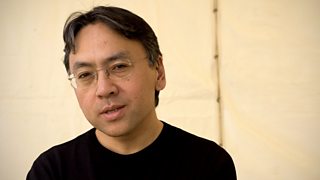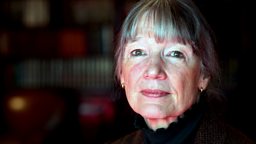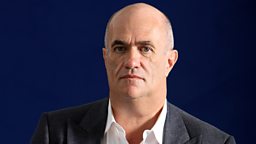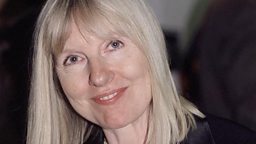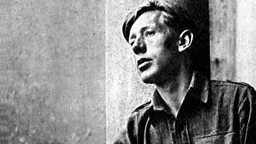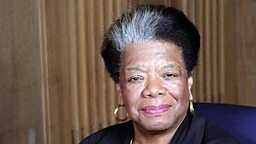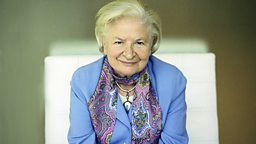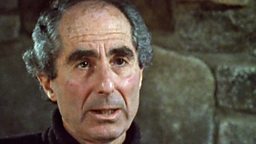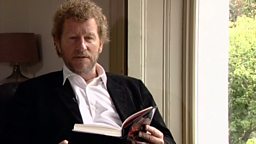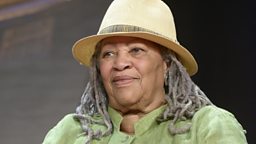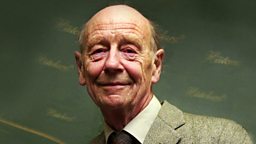Kazuo Ishiguro
5 October 2017
British writer Kazuo Ishiguro has . The novelist was praised by the Swedish Academy as a writer "who, in novels of great emotional force, has uncovered the abyss beneath our illusory sense of connection with the world". .
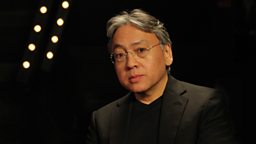
Kazuo Ishiguro features
-
![]()
Mark Lawson profiles Ishiguro and his approach to his work. With readings from The Buried Giant by Ishiguro.
-
![]()
David Suchet reads an extract from the powerful novel by Kazuo Ishiguro.
-
![]()
A group of readers joins James Naughtie and Kazuo Ishiguro to discuss The Remains of The Day.
-
![]()
Kazuo Ishiguro is Sue Lawley's castaway in February 2002.
-
![]()
Ishiguro talks with Andrew Marr about his sixth novel, Never Let Me Go.
-
![]()
Sports host Colin Murray and comedian Bob Mills discuss their top books with Harriett Gilbert, who enthuses over Ishiguro's An Artist of the Floating World.
About the author
Kazuo Ishiguro became a household name with 1989's The Remains of the Day, arguably his best known book.
Read more
Born in Nagasaki, Japan, in 1954, at the age of five Ishiguro moved with his family to England when his father was offered a post as an oceanographer in Surrey.
The award-winning author read English and philosophy at the University of Kent - following a gap year which included working as a grouse beater for the Queen Mother at Balmoral.
In 1979 Ishiguro enrolled on the MA in creative writing at the University of East Anglia. His tutors were Malcolm Bradbury and Angela Carter.
His thesis later became his critically acclaimed first novel, A Pale View of Hills (1982) which won the Winifred Holtby Memorial Prize. Narrated by a Japanese widow living in England, the novel’s historical context is the aftermath of the bombing of Nagasaki.
The construction of private memories and how individuals maintain their sense of self, against the backdrop of seismic world events, have continued to define his writing.
Ishiguro’s second novel An Artist of the Floating World (1986) won the Whitbread Book of the Year. It takes the bombing of Hiroshima as its setting where the artist Masuji struggles to reconcile his military past.
The Booker winner The Remains of the Day followed next. It is narrated by Stevens, a butler at a stately home. Set 11 years after World War 2, Stevens has always regarded his employer, the late Lord Darlington, as a good man, but now he must confront the reality that Darlington was in fact a Nazi sympathiser. It was made into a film starring Anthony Hopkins and Emma Thompson.
His next novel The Unconsoled was more experimental and was published to a mixed reception in 1995. However, his following books When We Were Orphans (2000) and Never Let Me Go (2005) were both shortlisted for the Booker Prize. Never Let Me Go was also adapted for the screen starring Keira Knightley and Carey Mulligan.
Seventh book The Buried Giant (2015) marked a departure for Ishiguro. His first novel in ten years is set in Roman Britain, combining fantasy, history and myth.
In 1983 and 1993 Ishiguro was among the 20 Granta Best Young Novelists. In 1995 he was awarded an OBE for services to literature, and in 1998 the Chevalier de l’Ordre des Arts et des Lettres by the French government.
Elizabeth Allard, Βι¶ΉΤΌΕΔ Readings Unit
